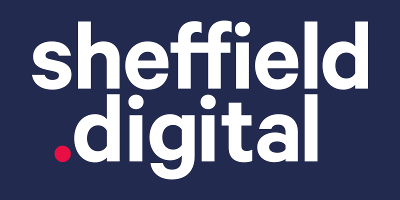29 November 2019 12:00-13:00. Vanessa Lopez, IBM.
Information School level 2: Room 204.
"Extracting actionable knowledge from healthcare policies".
Abstract
The abundance of digital information gives an unprecedented opportunity to use data science in domains such as health and social care. However, the real value of the data is in the information and knowledge that we are able to surface and materialise. Knowledge Graphs (KGs) emerged as a unifying technology that facilitates the aggregation and representation of data from multiple and diverse data sources, both inspired by, and influencing, research in areas such as AI, cognitive computing, the Semantic Web, Search, Question Answering and Information Extraction. In this talk, I will provide a perspective from my journey and experience in adopting research in KGs and related areas to address significant problems in the healthcare industry through two use cases.
The first scenario, Fraud, Waste and Abuse in healthcare, accounts for financial loses in the tens of billions of dollars each year in the US, which limits the amount of funding available to those with legitimate needs. Regulations around compliance are described in text policies, which investigators have to review and refer to in an investigation case for further recovery actions. This is a labour-intense task, the sheer volume of claims and policies to review leads to poor understanding and coverage to prioritize investigations based on the likelihood of (money) recovery from inappropriately paid claims. The aim is to support investigation units identifying improper payments for unnecessary services, services exceeding the permitted unit limitations, or services that should not be billed separately on claims submitted for reimbursement by medical providers.
The second scenario is the delivery of care. Care professionals need to quickly dig through multiple sources to find information about patients. Furthermore, the high volume of (unstructured) case notes written by care professionals for patients receiving multiple services makes it easy to overlook what is really important. The goal is to provide insights from large volumes of unstructured notes to support informed decision making.
KGs combined with natural language, machine learning and semantic reasoning techniques allows us to capture actionable knowledge from policy text to identify improper payments, as well as from unstructured health records (case notes) to answer complex user information needs, and for better suggestions and predictions to be derived from diverse data. The challenges are still plentiful: to validate the value of cognitive systems in providing actionable insights that ultimately lead to better outcomes for individuals, to empower domain experts to co-reason with the system, and for systems to continuously learn from the actual practice of care professionals.
Bio
Vanessa Lopez is a researcher scientist at IBM Research Ireland since 2012, where she investigates AI solutions for integrated healthcare. Her research combines semantics, natural language and learning to create applications that support care professionals taking informed patient-centric decisions, which received the 2017 US-Ireland Research Innovation Award. She is currently the team lead on a project that extracts knowledge from healthcare policies to support detecting fraud, waste and abuse on claim data. Prior to that she was a research associate at KMi (Open University) from 2003, where she built pioneering prototypes for Natural Language interfaces over Linked Data and obtained a PhD. She graduated with a master’s degree in computer engineer from the technical university of Madrid (UPM). Her current research interests are to investigate how technology can be made “smarter” to better understand human needs and to support us, as a society, to target complex problems. In particular, using knowledge graphs as a unifying technology that facilitates capturing, aggregating and interpreting knowledge from diverse data sources, both structured and unstructured. She has participated actively in several EU projects, PC committees and chairing, and co-authored more than 50 publications in high impact conference and journals, with over 3000 citations.
More details andtickets: www.eventbrite.co.uk
About Information School
The Information School at The University of Sheffield is a thriving community of students, educators and researchers dedicated to the study and advancement of the information field and its professions. Our field is characterised by its distinctive, interdisciplinary focus on the interactions between people, information and digital technologies. It has the ultimate goal of enhancing information access, and the management, sharing and use of information, to benefit society. Good information empowers people and enriches their lives. Expertise to use, design and manage information products, services and systems effectively has never been more important than today, in our increasingly fast-moving and complex world.
The School has been at the forefront of developments in the information field for more than fifty years. We are recognised as the leading school of our kind in the UK, with an international reputation for the quality of our teaching and research, and for the achievements of our graduates. Our research is world-leading and we achieved the highest possible grade in every one of the Research Assessment Exercise (RAE) evaluations of research quality in UK universities since these began in 1989.
We achieved top positions in the Research Excellence Framework (REF) 2014 for research environment and for the impact of our research, based on the combined 4* (world-leading) and 3* (internationally excellent) categories. The results show that 100% of our research environment was judged to be of world-leading quality and 100% of our research impact was judged as world-leading or internationally excellent. Through our research we seek to make a significant intellectual contribution to advancing knowledge in our field, but also to impact on the practical management and use of information.
Information science is a multidisciplinary and interdisciplinary subject. Our staff backgrounds and research reflect influences from computing, health, chemistry and different arts and humanities and social sciences disciplines, as well as experience from professional practice in information roles. We have particular expertise in information and knowledge management, information systems, libraries and the information society, information retrieval, health informatics, data science and chemoinformatics. We run a vibrant doctoral programme which attracts students from many different countries to work with us in all of these areas.
Students who come to study with us at the Information School are an integral part of our research culture. The School is their home and we pride ourselves on the friendliness and helpfulness of staff. We offer students an outstanding academic education through a wide range of taught postgraduate degrees which embed the principles of research-led teaching. Students joining any of our degree programmes will develop a critical understanding of current issues in library and information management and will benefit from being taught by staff who are undertaking leading-edge research and who have many links with industry. As part of our mission to provide world-quality university education in information, we aim to inspire and help our students to pursue their highest ambitions for their academic and professional careers.


